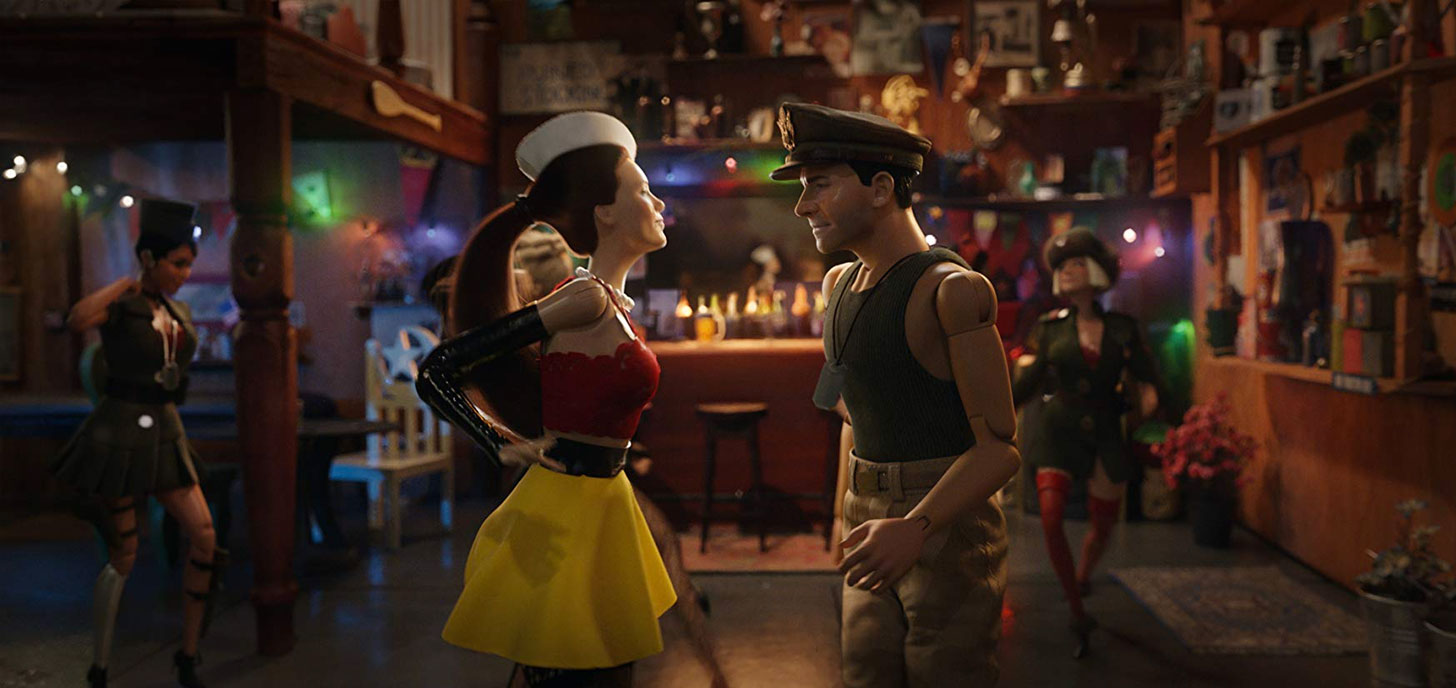Title: Upgrade
Rating: R
Director: Leigh Whannell
Starring: Logan Marshall-Green, Melanie Vallejo, Steve Danielsen
Runtime: 1 Hour 40 Minutes
What It Is: Logan Marshall-Green, a standout in 2016’s The Invitation stars as Grey Trace, a man as basic as his name. Grey is your standard hyper-masculine working-class prototype, a stubbled Luddite mechanic who views the innovations that encircle him every day in his vaguely dystopian near-future life with intense distrust. And he’s right: A malfunction with his self-driving car leads to a mugging that leaves Grey’s wife Asha (Melanie Vallejo) dead and himself paralyzed. Enter sylphlike technocrat Eron (Harrison Gilbertson), who offers to “upgrade” Grey with his new invention: STEM, an experimental brain implant that will cure Grey’s paralysis, getting him out of his wheelchair and giving him improved strength and cognitive abilities. Just the thing an aspiring Robocop on a Death Wish-esque mission of vengeance needs.
What We Think: The film plays out as a buddy-cop comedy between a man and the unsympathetic killer robot in his head. This gives Marshall-Green the chance to show off an unexpected flair for physical comedy, reacting with awestruck surprise when STEM takes over his motor function (with consent, of course), and comic horror at the gory aftermath of STEM’s killing sprees. The road to retribution is straightforward for Grey and STEM, playing out in an escalating series of sci-fi set pieces brutal enough to ride the line between action and horror. Nothing revolutionary there, nor in the film’s Argento-esque stylized color lighting, which has become quite common in recent years. (Admittedly, it looks cool, as it always does.)
What saves Upgrade from fading into the static of an overstuffed genre market is not only the comedic dynamic between Grey and STEM, but also some seriously impressive special effects—including a breathtaking highway car chase that looks like it came from a film 10 times this one’s budget—and Whannell’s eye for dynamic, Wachowski-influenced action, which contrasts well with the dingy world-building from production designer Felicity Abbott.
But there’s also emotional depth here. This is particularly highlighted in the scenes where Grey tries to adapt to life in a wheelchair with his mother taking over the small tasks of daily life that he could do before the attack. The scene in which he bursts into tears at his own newly discovered inability is unexpected but very welcome in a futuristic action film like this. It offers extra layers to a movie that in lesser hands would be more generic fare. He is later seen trying to take an overdose.
Whilst there is gritty action and heartbreaking emotional depth to the film there is also laugh out loud humor also. Check out the scene where Grey fights an adversary with the STEM in control for the first time. Marshall-Green’s comic timing is impeccable. Some of the action sequences end gorily- in fact, very gorily. There was more than one occasion during the screening in which audience members where audibly grossed out at special effects that seem to be straight out of a video nasty. And if you’re a horror fan like me that’s a great thing.
In fact, one gore scene reminded me of the left sequence from Drive. There are faint echoes of many other films within Upgrade (including The Matrix, 2001, Scanners, Blade Runner and it’s sequel, Westworld… Hell, it even reminded me of Knight Rider. Yes, it’s that good!) but you never get the feeling that Upgrade if ripping off these ideas and blending them together, hoping the audiences and critics won’t notice. Upgrade feels fresh, original and innovative- because it is.
Our Grade: B+, Overall, an entertaining and thought proking sci-fi film that surprises with its escape from the average tropes it seems initially bound by to emerge as something entirely of its own. No easy feat given how well-trodden the transhumanist angle on our future is, being well represented in all forms of entertainment media at this point. Couple with this some outstanding cinematography along with solid performances all round and you’ve got an unapologetic peep into a dark future that continues to surprise with its ability to twist into something you didn’t expect until the credits roll. This film may end up serving more as a calling card for Whannell than anything else: If he can achieve this much within Blumhouse’s famous “$5 million or less” model, picture what he could do with major studio cash.


